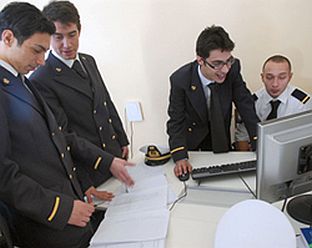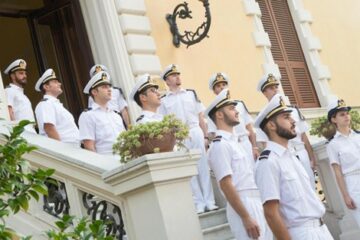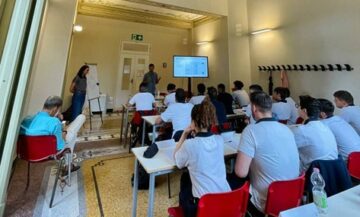Challenge(s)
How to develop the right synergies between stakeholders while providing education and training to meet the port city’s current and future needs?
Good practice
Adapt vocational training programmes to include the specific skills required by city/port activities
By working actively with stakeholders in research and education, ports and maritime industries can play a part in the development of specific training programmes. Their content is regularly updated to reflect the needs of a constantly changing port economy. These training programs can be customised to meet the requirements of both technical and service-based industries. They can vary from short-term courses that cover specific skills to long-term programs that provide a more comprehensive education. For instance, Genoa has a series of programmes aimed at developing future maritime workers.
This good practice also includes objectives 5.3 (Providing training in preparation for the deployment of smart and green technologies in cities and ports) and 5.4 (Promoting interactions and projects between schools, training institutes and the professional world) of the AIVP's 2030 Agenda.
Case study
The port city of Genoa has identified the maritime economy as a strategic sector for smart and sustainable growth. This strategic objective has resulted in the creation of two specialised training institutes: the Italian Shipping Academy, which offers training in the maritime sector, port logistics and naval shipbuilding and the respected “Nautico San Giorgio Institute”, founded in 1875, which provides 1300 students with training in the latest technologies used in maritime construction, vessel operations and naval mechanics. Furthermore, the Economics Department of Genoa University also offers a Master’s course in Maritime and Port Management and Economics. This course focuses on “learning by doing” with participative training activities: testimonials from experts, preparation of business plans, visits to terminals are all comprised in the course.
These vocational training programmes constitute one of the pillars of local development. They play an essential role in a knowledge-based economy that offers growth and job opportunities while improving the quality of life for the population and the territory.
The Province of Genoa, the Region, and the Western Ligurian Sea Port Authority also work closely with teaching staff to identify educational content for students in secondary schools. By introducing them to the world of ports and seas, it is hoped that they will be encouraged to go on and develop their interest in these courses further. The Port of Genoa has adopted a highly proactive, multi-faceted communication strategy for young people. Moreover, according to the UnionCamere study ” Forecast of employment and professional needs in Italy in the medium term (2022/2026) “, the Italian market can offer almost five jobs for every two graduates. The Nautico San Giorgio Institute suggests that CAIM/CAIE and Shipbuilder’s directions are the most requested training areas. (See “Un po’ di numeri” for more information on the study.)
Additional information
- https://accademiamarinamercantile.it/ (Only available in Italian)
- https://www.itnautico.edu.it/ (Only available in Italian)
- https://corsi.unige.it/en/corsi/8708
- Conventions | UniGe | University of Genoa



